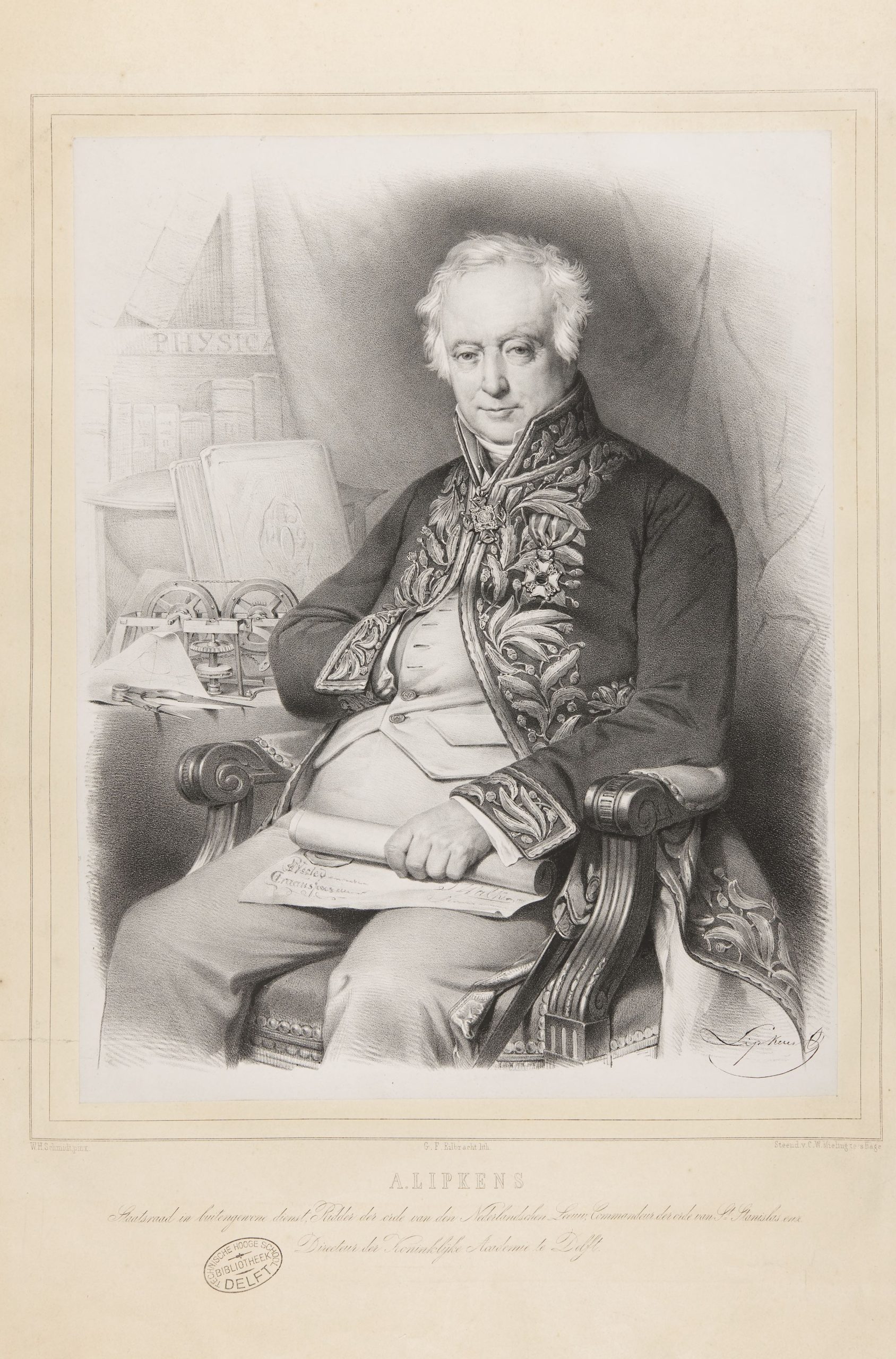Friday is Dies again, the university’s annual birthday party. TU Delft will then be 176 years old. How did it all happen again? University historian, Abel Streefland, refreshe
Painted portrait of Antoine Lipkens (1782-1847), first director of the Royal Academy. (Illustration: W.H. Schmidt)
On 8 January 1842, the forerunner of the university was founded: the ‘Royal Academy for the education of civilian engineers, for serving both the nation and industry, and of apprentices for trade’. The establishment of this school has a long history.
Until well into the nineteenth century, engineering education was closely linked to the military training of ‘genie’ (related to the word engineer) or fortification engineer. An important exception to this was the Leiden engineering school at Leiden University which was in operation between 1600 and 1669. Exceptionally for those times, lessons were given in Dutch and not in Latin, as was customary at universities.
Around 1800 the demand for sound technical education grew. Shouldn’t there be an École Polytechnique, similar to those in France? It was considered, but it did not happen. When the Netherlands was freed from French rule in 1813, a military Artillery and Genie school was established in Delft. But in 1829, this school closed its doors again due to a lack of space and quarrels. The apprentices had to go to the Royal Military Academy in Breda.
There were several initiatives to establish a school for higher technical education, but it would take until 8 January 1842 before King William II, in consultation with his advisor, the engineer Antoine Lipkens, signed a Royal Decree to establish a Royal Academy in Delft. Before then, Lipkens long been working for the establishment of an institute of higher technical education.
The King ordered Lipkens to prepare the opening of the school. To this end, the state promised a one-time subsidy of ten thousand guilders. Lipkens developed an educational plan and checked it against the training in Breda. He also imposed admission requirements for the pupils and set the tuition fee at two hundred guilders per year. The academy offered its students a four-year programme in which an academic year lasted ten months.
On 4 January 1843, the Royal Academy was officially opened. Lipkens became director and remained so until his retirement in 1846.
Abel Streefland / Universiteitshistoricus



Comments are closed.